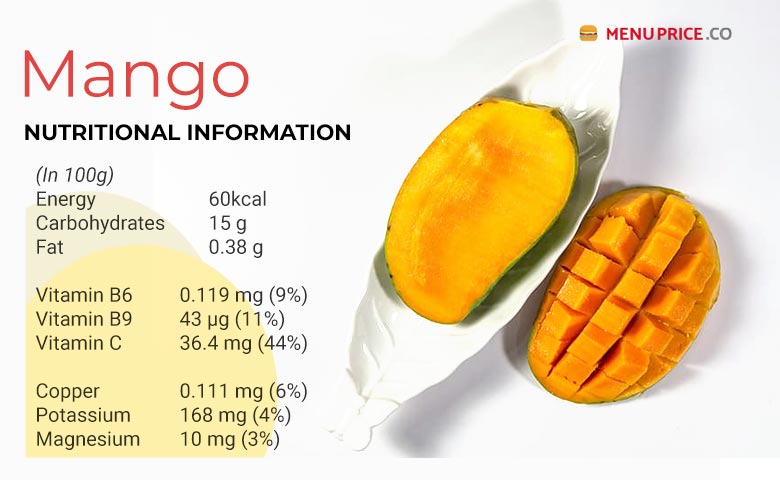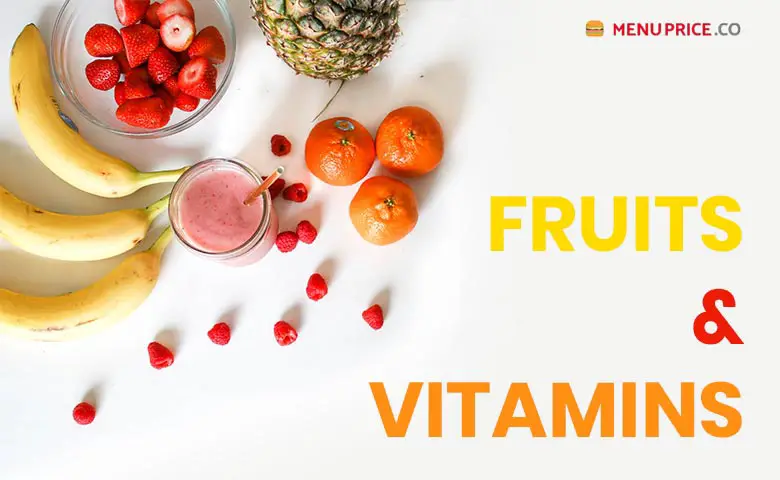Mango Nutrition Facts & Health Benefits

Mango is an edible fruit most commonly produced and consumed in South Asia and South East Asian countries. Mango trees are cultivated in subtropical, warmer climates such as India, Indonesia, China and Mexico. With more than 50 million tons of production, Mango production continues to grow it’s reach across the world. Mangoes are generally sweet when they're ripe. The mango is consumed directly as well as in juice form. It's also used to prepare pickle, sauce, chutney and an ingredient in many curry recipes in Bengal cuisines.
Table of Contents
Mango Nutrition Information
Mango offers close to zero fat making it ideal for dietary consumption. It has high Vitamin C and B6 folate content and low amount of mineral and other Vitamins in daily intakes.
Nutrition information in 100g of mango
Energy 250kJ (60kcal)
Carbohydrates 15 g
Sugars 13.7 g
Dietary fiber 1.6 g
Fat 0.38 g
Protein 0.82 g
| Vitamins | Quantity | % Daily Intake |
|---|---|---|
| Vitamin A | 54 μg | 7% |
| Thiamine (B1) | 0.028 mg | 2% |
| Riboflavin (B2) | 0.038 mg | 3% |
| Niacin (B3) | 0.669 mg | 4% |
| Pantothenic acid | 0.197 mg | 4% |
| Vitamin B6 | 0.119 mg | 9% |
| Folate (B9) | 43 μg | 11% |
| Choline | 7.6 mg | 2% |
| Vitamin C | 36.4 mg | 44% |
| Vitamin E | 0.9 mg | 6% |
| Vitamin K | 4.2 μg | 4% |
| Minerals | Quantity | % Daily Intake |
|---|---|---|
| Calcium | 11 mg | 1% |
| Copper | 0111 mg | 6% |
| Iron | 0.16 mg | 1% |
| Magnesium | 10 mg | 3% |
| Manganese | 0.063 mg | 3% |
| Phosphorus | 14 mg | 2% |
| Potassium | 168 mg | 4% |
Mango Health Benefits
Mango is excellent for digestive health as it has various digestive enzymes such as amylases. Also the high dietary fiber content helps in reducing constipation and diarrhea. Research indicates Mango contains various polyphenols and its high antioxidants is better for the body cell protection against aging, chronic disease and other diseases. Mango also has high Vitamin C content good for hair and skin care.


